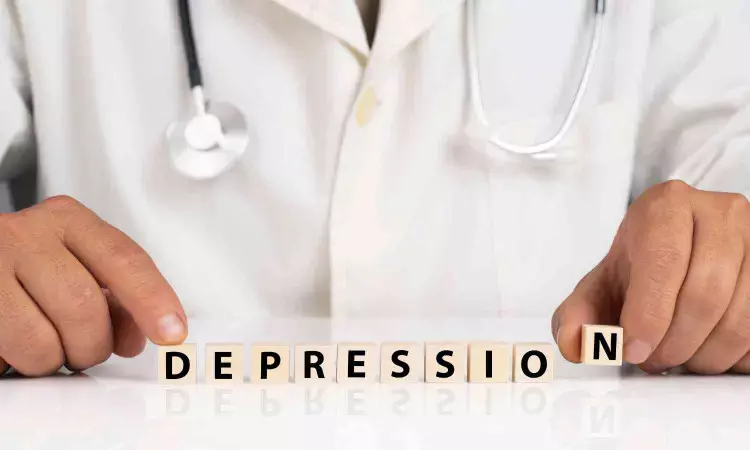- Home
- Medical news & Guidelines
- Anesthesiology
- Cardiology and CTVS
- Critical Care
- Dentistry
- Dermatology
- Diabetes and Endocrinology
- ENT
- Gastroenterology
- Medicine
- Nephrology
- Neurology
- Obstretics-Gynaecology
- Oncology
- Ophthalmology
- Orthopaedics
- Pediatrics-Neonatology
- Psychiatry
- Pulmonology
- Radiology
- Surgery
- Urology
- Laboratory Medicine
- Diet
- Nursing
- Paramedical
- Physiotherapy
- Health news
- Fact Check
- Bone Health Fact Check
- Brain Health Fact Check
- Cancer Related Fact Check
- Child Care Fact Check
- Dental and oral health fact check
- Diabetes and metabolic health fact check
- Diet and Nutrition Fact Check
- Eye and ENT Care Fact Check
- Fitness fact check
- Gut health fact check
- Heart health fact check
- Kidney health fact check
- Medical education fact check
- Men's health fact check
- Respiratory fact check
- Skin and hair care fact check
- Vaccine and Immunization fact check
- Women's health fact check
- AYUSH
- State News
- Andaman and Nicobar Islands
- Andhra Pradesh
- Arunachal Pradesh
- Assam
- Bihar
- Chandigarh
- Chattisgarh
- Dadra and Nagar Haveli
- Daman and Diu
- Delhi
- Goa
- Gujarat
- Haryana
- Himachal Pradesh
- Jammu & Kashmir
- Jharkhand
- Karnataka
- Kerala
- Ladakh
- Lakshadweep
- Madhya Pradesh
- Maharashtra
- Manipur
- Meghalaya
- Mizoram
- Nagaland
- Odisha
- Puducherry
- Punjab
- Rajasthan
- Sikkim
- Tamil Nadu
- Telangana
- Tripura
- Uttar Pradesh
- Uttrakhand
- West Bengal
- Medical Education
- Industry
Psilocybin therapy effectively improves post-pandemic depression symptoms among clinicians: JAMA

A new study published in the Journal of American Medical Association found that psilocybin therapy is a novel treatment paradigm for post-pandemic depression symptoms linked with frontline clinical practice in physicians facing mild to severe symptoms. Burnout, depression, and posttraumatic stress disorder (PTSD) are among the psychological morbidities suffered by physicians, advanced practice practitioners (APPs), and nurses as a result of working during the COVID-19 epidemic. Thereby, Anthony Back and colleagues undertook this study to see if psilocybin treatment helped relieve symptoms of depression, burnout, and PTSD among US doctors who developed these symptoms while working on the front lines of clinical care during the epidemic.
The participants in this double-blind randomized clinical experiment were recruited between February and December of 2022. Physicians, APPs, and nurses who worked on the front lines for more than a month during the pandemic and who did not have any pre-pandemic mental health diagnoses but who at enrollment showed moderate to severe depressive symptoms were among the participants. The niacin or psilocybin arm was allocated to participants at random. Based on the intention-to-treat principle, data analysis was carried out from December 2023 to May 2024. 3 integration visits, 1 medication session, and 2 preparation visits made up one intervention episode. The participants were given either 100 mg of niacin or 25 mg of psilocybin orally during the medication session.
Of the 30 doctors who took part, 15 were randomized to receive psilocybin and 15 to receive niacin. From the first preparation session to day 28, the mean change in depressive symptoms (MADRS scores) of the psilocybin arm was −21.33 (7.84) whereas the niacin arm's was −9.33 (7.32). The mean difference between the two arms was −12.00 which showed improvement. Although it was not statistically significant, the mean change in SPFI ratings from the first preparation session to day 28 indicated a numerically greater improvement in burnout symptoms in the psilocybin arm as compared to the niacin arm.
The PCL-5 score change was assessed descriptively since the SPFI score change was not statistically significant. The mean reduction in PCL-5 scores revealed that the psilocybin arm had a numerically bigger decrease in PTSD symptoms from the first preparation session to day 28, although this difference was not statistically verified. Overall, this randomized clinical experiment discovered that psilocybin treatment significantly reduced the depressive symptoms of physicians and consistently following frontline work throughout the COVID-19 epidemic.
Source:
Back, A. L., Freeman-Young, T. K., Morgan, L., Sethi, T., Baker, K. K., Myers, S., McGregor, B. A., Harvey, K., Tai, M., Kollefrath, A., Thomas, B. J., Sorta, D., Kaelen, M., Kelmendi, B., & Gooley, T. A. (2024). Psilocybin Therapy for Clinicians With Symptoms of Depression From Frontline Care During the COVID-19 Pandemic. In JAMA Network Open (Vol. 7, Issue 12, p. e2449026). American Medical Association (AMA). https://doi.org/10.1001/jamanetworkopen.2024.49026
Neuroscience Masters graduate
Jacinthlyn Sylvia, a Neuroscience Master's graduate from Chennai has worked extensively in deciphering the neurobiology of cognition and motor control in aging. She also has spread-out exposure to Neurosurgery from her Bachelor’s. She is currently involved in active Neuro-Oncology research. She is an upcoming neuroscientist with a fiery passion for writing. Her news cover at Medical Dialogues feature recent discoveries and updates from the healthcare and biomedical research fields. She can be reached at editorial@medicaldialogues.in
Dr Kamal Kant Kohli-MBBS, DTCD- a chest specialist with more than 30 years of practice and a flair for writing clinical articles, Dr Kamal Kant Kohli joined Medical Dialogues as a Chief Editor of Medical News. Besides writing articles, as an editor, he proofreads and verifies all the medical content published on Medical Dialogues including those coming from journals, studies,medical conferences,guidelines etc. Email: drkohli@medicaldialogues.in. Contact no. 011-43720751


